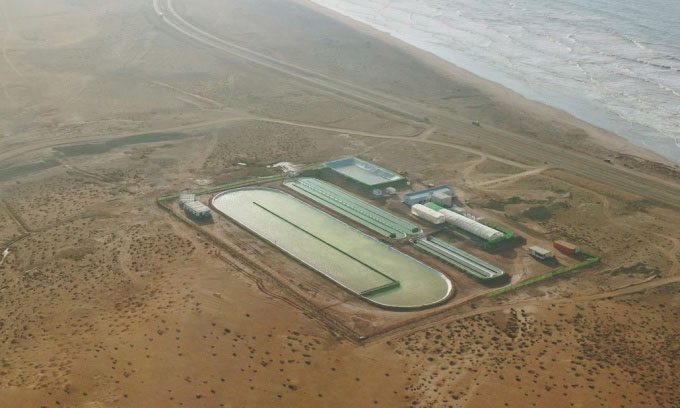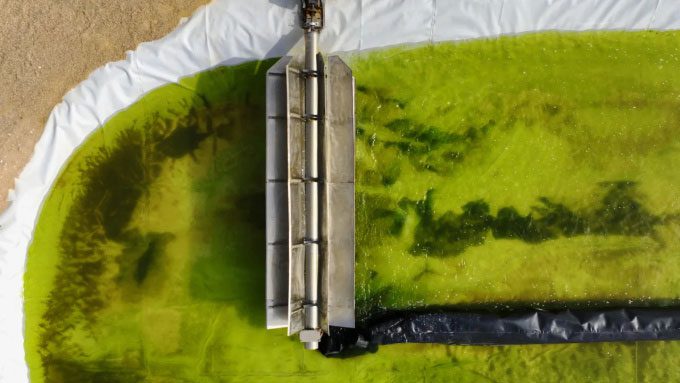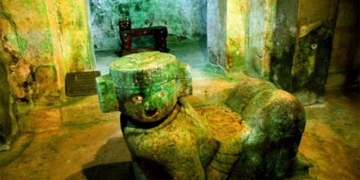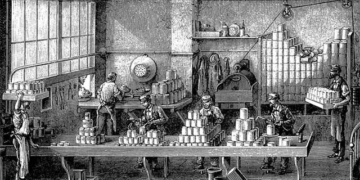UK Startup Builds Pilot Facility in the Sahara Desert to Cultivate Algae, Absorb CO2 from the Atmosphere, and Release Oxygen.
Brilliant Planet, a London-based startup, has leased 6,100 hectares of land in the coastal town of Akhfenir, located in southern Morocco, between the Atlantic Ocean (to the north) and the Sahara Desert (to the south). This land is being used to grow algae, CNN reported on August 18. Algae help absorb CO2 from the atmosphere and release oxygen through photosynthesis.

Algae cultivation pilot facility in Akhfenir, southern Morocco. (Photo: Brilliant Planet).
Brilliant Planet has developed a method for rapidly cultivating algae, starting from a laboratory glass and ending in 12,000 square meter sea water tanks, according to CEO Adam Taylor. Taylor noted that the process mimics natural algal blooms (rapid algae reproduction that colors water) and a single algae test tube can multiply to fill 16 massive tanks—equivalent to 77 Olympic-sized swimming pools—within just 30 days.
The algae are extracted from the water, then pumped to a 10-story tower and sprayed into the air above the desert. During the 30-second descent, the hot air dries the biomass, leaving behind super-salty algae fragments. Experts can collect these and bury them shallowly, effectively isolating the carbon they contain for thousands of years.
“Nature-based solutions are a great way to remove carbon,” Taylor stated. He believes the desert is an underutilized environment. “It’s not expensive to lease desert land, and the government is very supportive of economic activities. Moreover, you don’t have to compete with farms or forests; you’re in a remote area and not bothering anyone,” he added.
Taylor affirmed that Brilliant Planet’s solution could permanently remove CO2 at a rate 30 times greater per hectare than a typical forest in Europe. Environmental engineer Fatna Ikrame El Fanne, co-founder of the organization Youth For Climate Morocco, considers this a promising method but remains cautious.
“Large-scale algae production can harm local ecosystems, deplete water resources, and alter habitats. It must adhere to regulations, implement sustainable land management practices, use water efficiently, restore ecosystems, involve community participation, and undergo continuous monitoring,” El Fanne stated.

Algae thriving in the pilot tanks of Brilliant Planet’s facility in southern Morocco. (Photo: Brilliant Planet).
Brilliant Planet’s pilot site covers 3 hectares, with plans to expand to a 30-hectare facility in Akhfenir next year. The company also aims to build a 200-hectare farm, followed by a 1,000-hectare site in the area.
Brilliant Planet has secured over $26 million in investments to date. The company’s target is to remove one million tons of CO2 annually by the end of this decade, equivalent to the yearly emissions of 217,000 cars. Taylor stated that this will require deploying 10,000 hectares across multiple locations and securing an investment of around $1 billion.


















































